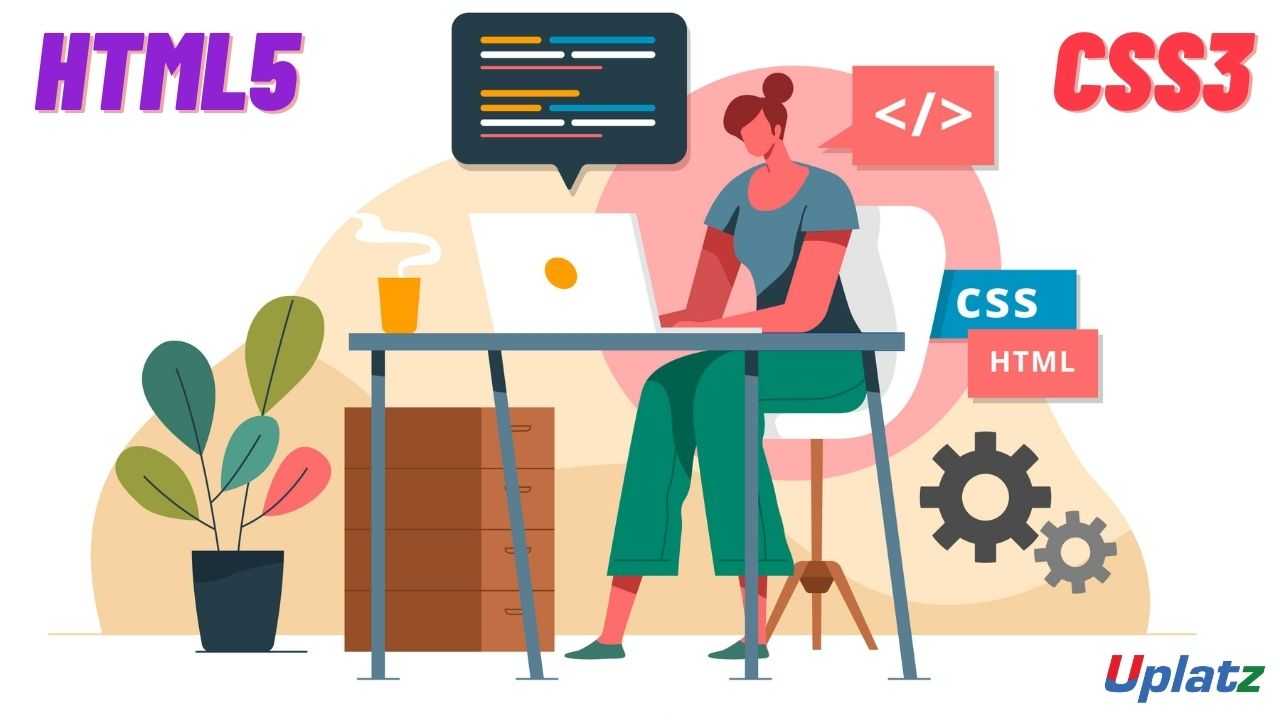Android
Learn Android App Development Using Kotlin and Java – Build Real Apps with Modern Android Tools 94% Started a new career
BUY THIS COURSE (USD 41)
94% Started a new career
BUY THIS COURSE (USD 41)
-
 83% Got a pay increase and promotion
83% Got a pay increase and promotion
Students also bought -
-

- Computer Hardware Engineering
- 10 Hours
- USD 12
- 760 Learners
-

- API Testing
- 40 Hours
- USD 12
- 589 Learners
-

- HTML5 and CSS3
- 15 Hours
- USD 12
- 1333 Learners

Android Development: Build Real Apps with Java, Kotlin, and Android Studio – Self-Paced Online Course
The Android Development course is a comprehensive, self-paced learning program designed to equip you with the essential skills to create robust and scalable mobile applications for Android devices. Whether you're a beginner with no prior programming experience or a developer looking to expand into mobile development, this course provides an in-depth pathway to mastering Android app development using both Java and Kotlin – the two most widely used programming languages for Android.
Android remains the most dominant mobile operating system globally, powering billions of smartphones, tablets, smart TVs, and wearables. With an ever-growing demand for skilled Android developers across industries, learning Android app development not only opens doors to high-paying jobs but also empowers you to build and publish your own apps on the Google Play Store.
The course begins with an introduction to the Android ecosystem and the fundamentals of Android Studio – the official Integrated Development Environment (IDE) for Android development. You will learn how to set up your development environment, create your first Android project, and navigate through the various components of Android Studio such as the code editor, layout designer, and device emulator.
You’ll then dive into Android app architecture and core components such as Activities, Fragments, Intents, Services, and Broadcast Receivers. You’ll understand how Android apps manage their lifecycle, interact with users, and respond to system events. Using XML, you’ll learn how to design responsive and visually appealing user interfaces, implement layouts, widgets, and styles that follow Material Design guidelines, and ensure your apps are user-friendly across a range of device sizes.
A major portion of the course is dedicated to programming in Java and Kotlin, enabling you to develop fluency in both languages. You’ll explore object-oriented programming concepts such as classes, inheritance, interfaces, and error handling. Special attention is given to Kotlin, Google’s preferred language for modern Android development, with its concise syntax, safety features, and seamless interoperability with Java.
The course then moves into advanced Android development using Jetpack – a suite of libraries and tools that help developers write cleaner, more maintainable code. You’ll work with ViewModel to manage UI-related data, LiveData to observe data changes, Navigation Component for structured app navigation, and Room Database for efficient local data storage. These components ensure your apps are robust, testable, and optimized for performance.
Firebase, Google’s powerful Backend-as-a-Service (BaaS), is also a central focus. You’ll integrate Firebase Authentication to manage user logins, Firestore for cloud-based data storage, and Firebase Realtime Database for live data syncing across devices. These integrations allow you to build fully functional, cloud-connected applications without setting up your own server infrastructure.
Other key topics include RESTful API integration using Retrofit, background task management using WorkManager, asynchronous programming with Kotlin Coroutines, push notifications using Firebase Cloud Messaging, and best practices for securing user data and app permissions. You'll also learn how to test your apps thoroughly using Android’s testing tools and prepare them for release by signing APKs and publishing to the Google Play Store.
Throughout the course, you will build multiple real-world apps, such as a weather app, to-do list app, chat app, and fitness tracker, each designed to reinforce key concepts and help you develop a strong mobile app portfolio. Each module is paired with hands-on coding exercises, downloadable source code, quizzes, and assignments to solidify your learning.
By the end of the course, you will have a deep understanding of how Android apps are structured, built, and maintained. You’ll be able to independently develop and publish your own apps, troubleshoot errors, implement best practices in UI/UX design, and collaborate effectively in a mobile development team.
This Android Development course also prepares you for technical interviews and professional certifications. You'll gain the confidence to apply for roles such as Android App Developer, Kotlin Developer, Mobile Software Engineer, and Firebase Developer. With lifetime access to learning materials, expert mentorship, and community support, this course is an invaluable resource for launching or advancing your career in mobile application development.
- Set up and use Android Studio for native Android development.
- Understand Android app architecture, components, and lifecycle.
- Build apps using Java and Kotlin, the primary languages for Android.
- Design modern, responsive user interfaces using XML and Jetpack Compose.
- Integrate RESTful APIs and handle data using Retrofit and JSON.
- Implement local data storage with SQLite and Room Database.
- Use Jetpack libraries like ViewModel, LiveData, and Navigation Component.
- Integrate Firebase services for authentication, storage, and real-time data.
- Apply background processing using Kotlin Coroutines and WorkManager.
- Test, sign, and publish apps to the Google Play Store.
Android – Course Syllabus
1. Advanced UI/UX Design
- Material Design principles and animations
- Custom Views and ViewGroups
- Jetpack Compose (modern declarative UI)
- Dark mode, themes, and styles
2. Architecture & State Management
- MVVM Architecture Pattern
- ViewModel, LiveData, and StateFlow
- Repository pattern and Clean Architecture
- Dependency Injection (Hilt/Dagger)
3. Networking and APIs
- Retrofit and OkHttp for REST API integration
- GSON/Moshi for JSON parsing
- Interceptors, headers, and logging
- Handling API errors and retry logic
4. Data Storage & Persistence
- Room Database (SQLite abstraction)
- DataStore (replacement for SharedPreferences)
- Offline-first approach and caching strategies
- Encryption and secure storage
5. Background Processing
- WorkManager for scheduled tasks
- Coroutines and Kotlin Flow for async operations
- Services and JobScheduler (legacy support)
- Battery and network-aware background tasks
6. Advanced Kotlin for Android
- Higher-order functions and Lambdas
- Extension functions and scopes (let, also, apply)
- Sealed classes and data classes
- Coroutines: structured concurrency and exception handling
7. Jetpack & Modern Android Tools
- Navigation Component with Safe Args
- Paging3 for efficient data loading
- Lifecycle-aware components
- Jetpack Compose advanced patterns
8. Testing and Debugging
- Unit Testing with JUnit and MockK
- UI Testing with Espresso and Compose Test
- Debugging with Android Studio tools and profilers
- Logcat analysis and memory leak detection
9. Publishing & Performance Optimization
- ProGuard/R8 and app shrinking
- App Bundles and Play Store publishing
- Crashlytics and real-time monitoring
- ANR, memory, and CPU profiling
10. Real-World Projects & Interview Prep
- Build a feature-rich app (e.g., social feed, tracker)
- Apply advanced architecture and tools
- Android interview questions and hands-on challenges
- Android App Developer
- Mobile Application Developer
- Kotlin Developer
- Java Developer (Mobile)
- UI/UX Mobile Designer
- Firebase Developer
- Mobile QA Tester
- Software Engineer (Android)
- What is an Activity in Android?
An Activity is a single screen in an Android app, serving as the entry point for user interaction. - How does Android manage app lifecycle?
Android uses lifecycle methods (onCreate, onStart, onResume, etc.) to manage app state as users navigate or switch apps. - What is the difference between Kotlin and Java in Android?
Kotlin is more concise, null-safe, and interoperable with Java. It is now the preferred language for Android development. - What is Jetpack Compose?
Jetpack Compose is a modern toolkit for building native UIs declaratively using Kotlin. - How do you store data in Android apps?
You can use SharedPreferences, SQLite, Room Database, or cloud services like Firebase. - What is Retrofit used for?
Retrofit is a type-safe HTTP client used to connect Android apps with RESTful APIs and retrieve data in JSON format. - How do you handle background tasks?
With WorkManager, AsyncTask (deprecated), or Kotlin Coroutines for background processing. - What is the purpose of ViewModel in Android?
ViewModel stores and manages UI-related data in a lifecycle-conscious way, allowing data to survive configuration changes. - How do you publish an app to Google Play Store?
You create a signed APK or AAB, create a developer account, and submit your app via the Google Play Console - How do you publish an app to Google Play Store?
You create a signed APK or AAB, create a developer account, and submit your app via the Google Play Console.









